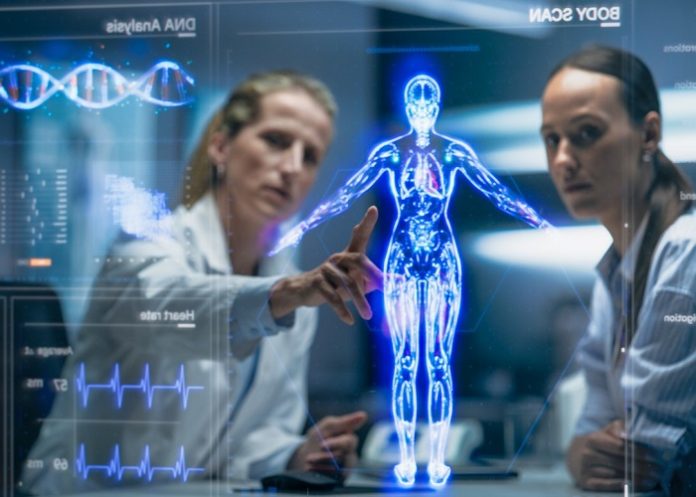Recent research found an alarming 6% drop in tumour detection rates when doctors performed procedures without artificial intelligence (AI) assistance, reports Fox News.
The study by European researchers investigated how AI can change the behaviour of endoscopists when conducting a colonoscopy, and how their performance dips when not using AI, following clinicians at four endoscopy centres in Poland participating in the ACCEPT (Artificial Intelligence in Colonoscopy for Cancer Prevention) trial, where AI tools for polyp detection were introduced at the end of 2021.
Colonoscopies at these centres were randomly selected to be administered with or without AI assistance.
The researchers – from Poland and including teams from Norway, Sweden and Italy, among others – gauged the quality of the colonoscopies by comparing the identification of tumours (also known as the adenoma detection rate, or ADR) three months before and three months after implementing the AI.
From September 2021 to March 2022, 1 443 patients underwent non-AI-assisted colonoscopies before and after the introduction of AI.
The study found that the tumour detection rate decreased “significantly”, going from 28.4% before AI exposure to 22.4% after AI exposure.
The findings were published in The Lancet Gastroenterology and Hepatology.
Per the researchers’ analysis, exposure to AI, patient gender and age were “independent factors” associated with the tumour identification rate.
“Continuous exposure to AI might reduce the ADR of standard non-AI-assisted colonoscopy, suggesting a negative effect on endoscopist behaviour,” the researchers concluded.
Harvey Castro, MD, an emergency physician and specialist in AI and healthcare based in Texas, said the study was an “important piece of work”.
“The study highlights a paradox in medicine: artificial intelligence can help us detect cancer, but it may also weaken the doctor’s own ability to see what matters when the tool is not available,” he said.
Castro said even a 1% change can affect colon cancer survival for thousands of patients, which makes the 6% drop in detection rates significant.
“Even small changes in adenoma detection can shift cancer outcomes,” he added. “A reduction of a few percentage points is meaningful at a population level.”
The expert recommends integrating AI “wisely” instead of avoiding it altogether.
“As a physician futurist, I believe artificial intelligence is one of the most powerful tools we have for improving detection and saving lives,” Castro said.
“At the same time, this study reminds us of a simple truth: medicine is still a human profession. The doctor’s eye, judgment and pattern recognition remain irreplaceable.”
Study details
Endoscopist deskilling risk after exposure to artificial intelligence in colonoscopy: a multicentre, observational study
Krzysztof Budzyń, Marcin Romańczyk, Diana Kitala, Hans Adami et al.
Published in The Lancet Gastroenterology and Hepatology on 12 August 2025
Summary
Background
It is not known if continuous exposure to artificial intelligence (AI) changes endoscopists’ behaviour when conducting colonoscopy. We assessed how endoscopists who regularly used AI performed colonoscopy when AI was not in use.
Methods
We conducted a retrospective, observational study at four endoscopy centres in Poland taking part in the ACCEPT (Artificial Intelligence in Colonoscopy for Cancer Prevention) trial. These centres introduced AI tools for polyp detection at the end of 2021, after which colonoscopies had been randomly assigned to be conducted with or without AI assistance according to the date of examination. We evaluated the quality of colonoscopy by comparing two different phases: three months before and three months after AI implementation. We included all diagnostic colonoscopies, excluding those involving intensive anticoagulant use, pregnancy, or a history of colorectal resection or inflammatory bowel disease. The primary outcome was change in adenoma detection rate (ADR) of standard, non-AI assisted colonoscopy before and after AI exposure. Multivariable logistic regression was done to identify independent factors affecting ADR.
Findings
Between Sept 8, 2021, and March 9, 2022, 1443 patients underwent non-AI assisted colonoscopy before (n=795) and after (n=648) the introduction of AI (median age 61 years [IQR 45–70], 847 [58·7%] female, 596 [41·3%] male). The ADR of standard colonoscopy decreased significantly from 28·4% (226 of 795) before to 22·4% (145 of 648) after exposure to AI, corresponding with an absolute difference of –6·0% (95% CI –10·5 to –1·6; p=0·0089). In multivariable logistic regression analysis, exposure to AI (odds ratio 0·69 [95% CI 0·53–0·89]), male versus female patient sex (1·78 [1·38–2·30]), and patient age ≥60 years versus <60 years (3·60 [2·74–4·72]) were the independent factors significantly associated with ADR.
Interpretation
Continuous exposure to AI might reduce the ADR of standard non-AI assisted colonoscopy, suggesting a negative effect on endoscopist behaviour.
See more from MedicalBrief archives:
New AI tool IDs cancer, speeds up diagnosis
AI changing radiology, but not replacing human input

